An Unexpected Gift
My sister-in-law is a dynamo in a tiny package — an opera singer, actress, clown, energy healer, and animal lover. Lately, she’s been concerned that my elderly dog Teagan is overdoing therapy dog work.
True, together Teagan and I have done more than 200 visits to hospitals, courts, police departments, and even the King Soopers grocery store in the aftermath of the shooting. That’s a lot of draining emotional contact for both of us. If I thought Teagan didn’t enjoy the work, she’d retire, but she barks, dances in circles, and beats me to the car when I bring out the working vest she wears on visits (called a cape).
 This year my SIL gave me a surprise for Christmas—a session with an animal communicator. She knew the communicator, a woman in Denver, and wanted to be certain Teagan wasn’t getting ill from any negative energy or emotions picked up during therapy visits.
This year my SIL gave me a surprise for Christmas—a session with an animal communicator. She knew the communicator, a woman in Denver, and wanted to be certain Teagan wasn’t getting ill from any negative energy or emotions picked up during therapy visits.
I expected the communicator to talk in generalities or say things my SIL may have told her about my dog. I was even more skeptical when I learned the session could be done remotely over the phone based only on Teagan’s picture.
I dove into the session with some questions I’d prepared.
What was Teagan’s favorite toy? A little brown stuffed animal she calls Baby.
Okay. Good guess. Teagan does have a little brown moose she loves, but that’s a pretty common type of dog toy.
Who’s Teagan’s favorite parent? Your husband.
What!? That’s a question I never should have asked (LOL). But I’m the one who gives Teagan pills, injections, trims her nails, and performs all sorts of other unpleasantries whereas my husband rolls around the floor wrestling with her. Again, a good guess.
I shared that Teagan is allergic to chicken.
What food should I feed her? Definitely no fowl.
Of course not. I didn’t need the communicator to tell me that. I checked my watch. How much longer was this session?
Then the communicator continued: Try other proteins like beef, pork, and . . . hmmm . . . this can’t be right . . . kangaroo? Where did that come from all of a sudden?
Interesting. We’d recently tried a novel protein Teagan loved, which was — you guessed it — canned kangaroo. No way my SIL could have known that tidbit.
Okay, now I decided to throw the communicator a question from left field.
Was Teagan reincarnated? Turns out, Teagan never was a wild animal, and most of her past lives were as a human. Most vividly, the communicator saw Teagan in a small 18th century village as a midwife or healer, wearing a cape.
Whoa. Stop right there. A healer? Wearing a cape? Therapy dogs were known healers, but no way anyone outside the hospital therapy dog world called the dog vests “capes.”
At that point, the communicator had my complete attention, so I asked about Teagan’s health. After a few minutes, the communicator told me: Watch her liver.
Her liver? Teagan’s last blood work had shown slightly elevated liver values. No one other than the vet and my husband knew that.
Anything else about her health? Her left hip.
That’s odd. Teagan’s right hind leg sometimes gave her trouble, not her left one. I made a note to ask the vet on her next exam.
And, at the exam, the week before Christmas, the vet found a cancerous mast cell tumor on Teagan’s left hip. Since we’d caught the tumor so early, it hadn’t metastasized and was small enough to be cleanly removed.
Thanks to my sister-in-law and an animal communicator for the best gift ever.
Now I’m an openminded person. Do I believe? Well, I certainly don’t disbelieve. How about you?


 In my world, as long as the doughnut-adjacent sweet remains qualified by its “cake” modifier, it may be okay, but it doesn’t hold a candle to the real thing.
In my world, as long as the doughnut-adjacent sweet remains qualified by its “cake” modifier, it may be okay, but it doesn’t hold a candle to the real thing. I love doughnuts so much, I lent my addiction to the heroine in my
I love doughnuts so much, I lent my addiction to the heroine in my 

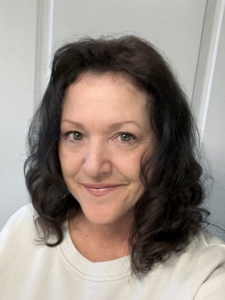 Today we’re excited to welcome Kari Lee Townsend, a long time friend and national bestselling mystery author, who is going to tell us a bit about her writing process and her latest project.
Today we’re excited to welcome Kari Lee Townsend, a long time friend and national bestselling mystery author, who is going to tell us a bit about her writing process and her latest project. 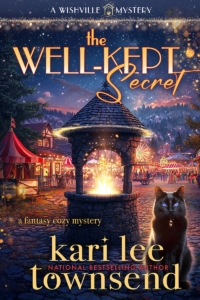
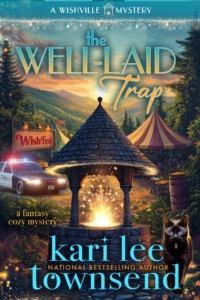 In addition to this new series, Kari also writes two other cozy mystery series and also writes women’s fiction and suspense as Kari Lee Harmon. She is one busy lady!
In addition to this new series, Kari also writes two other cozy mystery series and also writes women’s fiction and suspense as Kari Lee Harmon. She is one busy lady!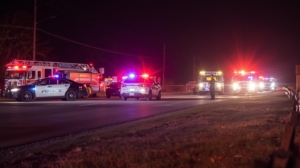
 Brooke Terpening – A former software geek and attorney, today I’m retired in Colorado with my husband. As a Miami attorney, some of the notable capital cases I worked on included Casey Anthony, Ariel Hernandez, and Michel Escoto. A graduate of the Lighthouse Book Project, I serve on the Rocky Mountain Chapter of Mystery Writers of America board as their newsletter editor. When I’m not writing mystery and legal suspense, I volunteer with my therapy dogs at hospitals, police departments, and mental health facilities.
Brooke Terpening – A former software geek and attorney, today I’m retired in Colorado with my husband. As a Miami attorney, some of the notable capital cases I worked on included Casey Anthony, Ariel Hernandez, and Michel Escoto. A graduate of the Lighthouse Book Project, I serve on the Rocky Mountain Chapter of Mystery Writers of America board as their newsletter editor. When I’m not writing mystery and legal suspense, I volunteer with my therapy dogs at hospitals, police departments, and mental health facilities.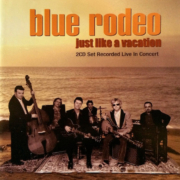

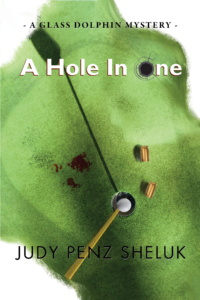 Excerpt from A Hole in One: A Glass Dolphin Mystery #2
Excerpt from A Hole in One: A Glass Dolphin Mystery #2 Excerpt from Where There’s a Will: A Glass Dolphin Mystery #3
Excerpt from Where There’s a Will: A Glass Dolphin Mystery #3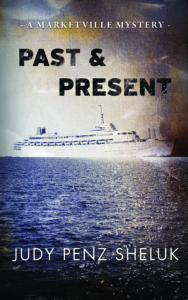 And finally, from Past & Present: A Marketville Mystery #2
And finally, from Past & Present: A Marketville Mystery #2

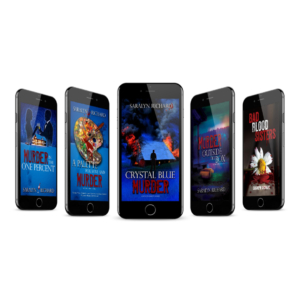


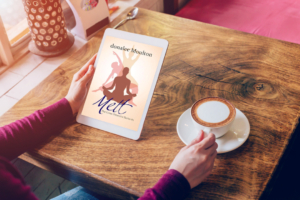

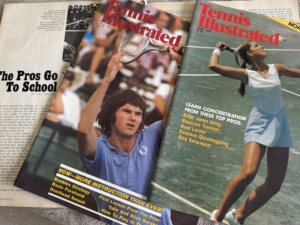 One Friday morning in L.A., a friend called me at work to ask if I could fill in for a journalist who was scheduled to cover the opening of a new tennis camp in Lake Tahoe over the weekend. Apparently, the designated reporter fell ill at the last minute, and the magazine was desperate to find a replacement.
One Friday morning in L.A., a friend called me at work to ask if I could fill in for a journalist who was scheduled to cover the opening of a new tennis camp in Lake Tahoe over the weekend. Apparently, the designated reporter fell ill at the last minute, and the magazine was desperate to find a replacement.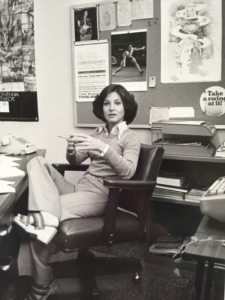
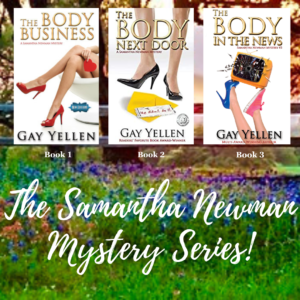
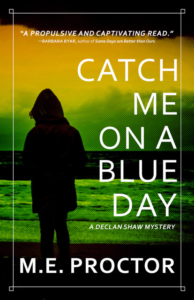 A Guest Post by Author M.E. Proctor
A Guest Post by Author M.E. Proctor